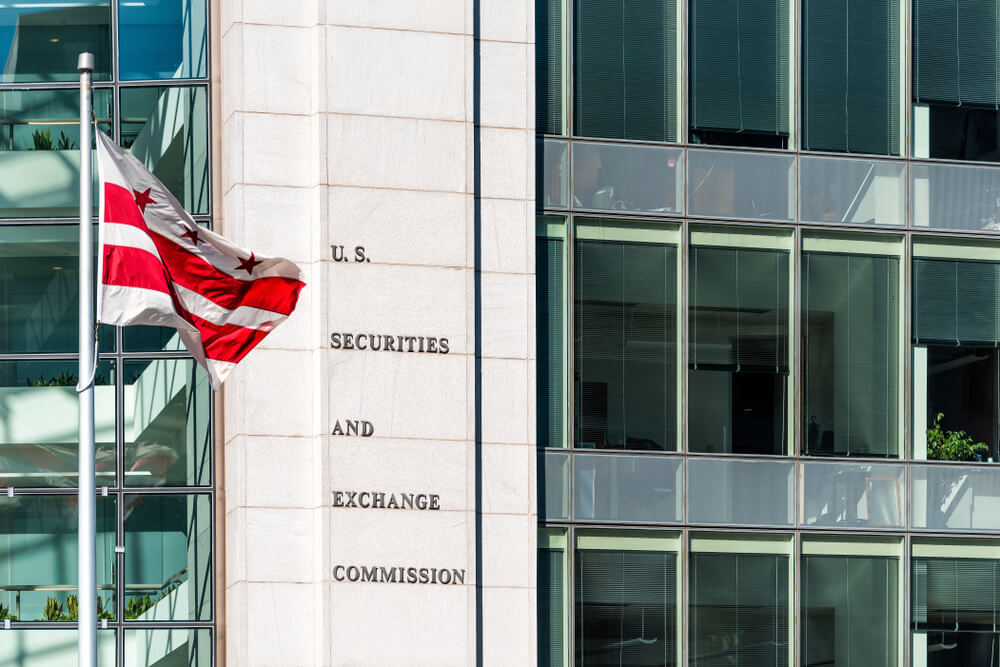ImpactAlpha, Nov. 10 – Investors poured nearly $50 billion into ESG-focused exchange-traded funds in just two days last week as the U.S. election swung toward former Vice President Joe Biden.
Behind the rush of investment: a belief that environmental, social & governance, or ESG, investing will get a boost from Biden’s agenda, which calls for a transition from fossil fuels to renewable energy and an inclusive, green recovery.
“ESG-related rulemaking under the current administration has effectively served to limit ESG investing, minimize standardization of ESG disclosures, and reduce activity in the proxy voting and shareholder proposal processes,” a team of Morgan Stanley strategists including Allison Binns Mark Savino wrote in a recent note.
“We think a potential Biden administration could create a regulatory environment that is more supportive of ESG investing, given the strong environmental and social themes in the Democratic platform.”
ESG investing has been a political football for more than 20 years. The Clinton administration was pro-, Bush was anti- and Obama was pro-. President Trump’s administration has viewed ESG with suspicion, if not outright hostility, at least in part because of its perceived threat to fossil fuel interests. The Department of Labor rushed through a wildly unpopular rule just days before the Nov. 3 election that prohibits retirement plan fiduciaries from selecting funds based on anything but purely “pecuniary” factors.
The Securities and Exchange Commission also has enacted rules designed to put the brakes on ESG’s rapid growth.
It won’t be simple to reverse the new rule, “Financial Factors in Selecting Plan Investments.” If the Labor Department is able to publish it in the Federal Register by November 20 it won’t be subject to the Congressional Review Act, which allows Congress to reverse rules published within 60 days of inauguration – if the votes are there. Most likely, the new Biden administration will have to go through its own lengthy rule-making process. (The rule could also face court challenges).
That could give the new administration the opportunity to mandate the inclusion of environmental and social factors in investment decision-making and go beyond the tepid permission to consider them only as tie-breakers that prevailed under the old status quo.
Even without a reversal, the momentum behind ESG may trump the politics. ESG is simply better investing, says Harvard Business School’s Vikram Gandhi, noting that the U.K., Europe and other areas have more affirmative ESG policies. “That trend is here to stay,” he says.
He does not fault the DOL for ensuring that fiduciaries do not sacrifice financial return to further social goals, but that misses the point, he says. “ESG is a core financial issue for good investing.”
“What they should be saying is, as a fiduciary, it’s your obligation to incorporate ESG factors, because if you don’t, you’re not making good long-term investment decisions.”
Corporate disclosure
The UN Principles of Responsible Investment, represented by more than 3,000 signatories with a total of more than $100 trillion in assets, urges a Biden administration to establish mandatory ESG disclosure for publicly traded companies and require investment fiduciaries to integrate material ESG factors into their investment processes.
“American regulators should require pension and investment fiduciaries to integrate material ESG factors into their investment processes,” writes PRI’s Fiona Reynolds. “Laws and regulations from the DOL and SEC need to be updated to eliminate any uncertainty that fiduciaries have an obligation to consider ESG issues.”
The U.S. Impact Investing Alliance, as part of a broader policy agenda, called for comprehensive legislation mandating corporate disclosure of ESG factors. “From the SEC’s Investor Advisory Council to bipartisan leaders in Congress, there is a growing consensus that these factors often have a material effect on financial performance,” says the Alliance’s Fran Seegull.
Creation of a new White House Office of Sustainable Finance and Business is the number one recommendation from US SIF: The Forum for Sustainable and Responsible Investment. The office would work with federal agencies and Congress “to advance guidance, regulations and legislation to enable sustainable investment.” The group, made up of investors representing $3 trillion in assets, calls on president elect Biden to appoint leaders with sustainable investment expertise to key agencies such as the Securities and Exchange Commission and Department of Labor.
ImpactAlpha invites Agents of Impact to share their insights into the post-election operating environment. What’s next for your work – and for you? Send a few lines or a bit more to [email protected] or use this handy form.











